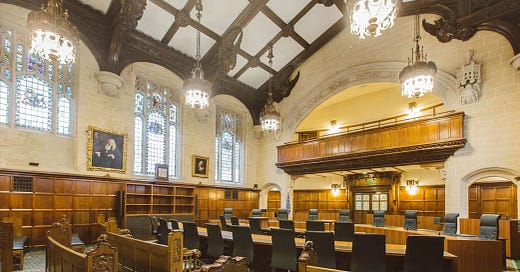Is a person with a full gender recognition certificate recognising the holder’s gender as female a “woman” for the purposes of the Equality Act 2010?
That’s the question five justices of the UK Supreme Court will attempt to answer this morning when they rule on an appeal by a campaign group called For Women Scotland against an interpretation of Scottish …
Keep reading with a 7-day free trial
Subscribe to A Lawyer Writes to keep reading this post and get 7 days of free access to the full post archives.



